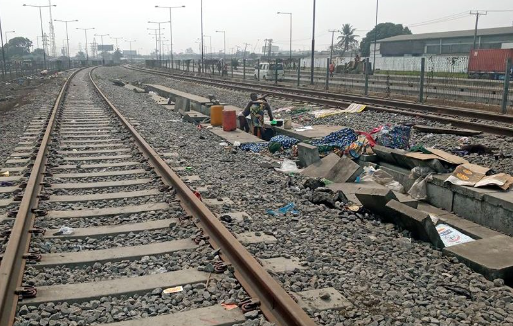The highlight of last week’s Federal Executive council (FEC) meeting was the approval of a $60billion, 25-year master plan for the complete overhaul of the Nigerian railway system. As envisaged, this plan will be implemented in phases, with each of these phases expected to bring about certain targeted developments to the nation’s railway infrastructure.
As a first step, there are plans in the pipeline by President Olusegun Obasanjo to present to the National Assembly, a Railways Development Bill that is expected to encapsulate the entire vision of the railways, which the Minister of Transport, Chief Ojo Maduekwe described as a revolutionary document.
The Nigerian railways has its roots in the colonial government’s effort to open up the Nigerian hinterland for the extraction and conveyance of commodities to feed the industrial metropolis while in turn helping to ensure the penetration of the Nigerian hinterland by the industrial goods coming from Britain and other parts of the Western world. But the railways also helped to forge a national consciousness amongst Nigerians because as it transported goods, it brought people from different parts of the country together, which led to the exchange of ideas including, most important of all, the anti-colonial feelings which eventually led to the independence of our country.
It is therefore not a coincidence that from the 1940s, the railway workers were at the forefront of the most organised agitations against colonial rule and provided the mass base for the nationalist movement which gave us freedom from the British colonialists on October 1, 1960.
While the railways continued to provide the essential services in the economy of Nigeria up to the 1980s, the rot within the system had deepened considerably as a result of dwindling investment in the upgrade of infrastructure; the activities of road transport groups impact-ling very negatively on the railways as the Nigerian state preferred to invest more in the use of road transportation and last but not the least, the neglect of the railway workers whose salaries were not paid up to nine months in many instances, while railway pensioners have had to endure humiliating condition of non-payment of pensions for many years.
Yet a cursory look at the international trends reveals that every serious country in the world valorises its railways system. High speed trains have played a very important role in the economic life of France and Japan, while the integration of Europe from Russia in the east to the western side has been an economically viable venture as a result of the contribution of the railways system on that continent.
it is in the hope of Daily Trust that the new vision will not go the way of other plans for the railways in the past. A well articulated and faithfully implemented railways development plan would deepen the economic integration of our country, especially if the new system takes in the entire country from East to West, North and South, as a departure from the colonial arrangement that has been in place over the past 100 years or so.
A modern country must have a well laid out railways infrastructure to convey goods and people while also be-ling a major employer of workers, consumer of electricity, modern signals system and an entertainment complex for a people integrated together in a progressive and developing national economic complex that is genuinely serving the interest of the people of Nigeria.
We therefore welcome the new vision for the Nigerian railways system and implore the federal government to stay the course through a faithful implementation of the project. It will be a major contribution to the future of Nigeria.


